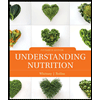Joe is studying for ANP. He is relaxed and resting. He just ate a big meal, so his digestive organs are very active. Joe begins to exercise. What changes will his heart AND vasculature make to ensure that his active muscles get the extra O2 and glucose they need? Heart: Vasculature: Most blood vessels Arterioles and precapillary sphincters serving his digestive organs Arterioles and precapillary sphincters serving his active muscles
Joe is studying for ANP. He is relaxed and resting. He just ate a big meal, so his digestive organs are very active.
Joe begins to exercise.
- What changes will his heart AND vasculature make to ensure that his active muscles get the extra O2 and glucose they need?
- Heart:
- Vasculature:
- Most blood vessels
- Arterioles and precapillary sphincters serving his digestive organs
- Arterioles and precapillary sphincters serving his active muscles
- This time, his muscles are active enough that he needs to increase his total body blood pressure. What stimulus causes the heart and vascular changes seen above?
- Using the terms “change in pressure” and “flow,” and comparing pressure in the arteries with that in the capillaries, and between capillaries perfusing the digestive organs vs those perfusing skeletal muscle, explain how/why these changes work to keep his muscles adequately fed.
When Joe is preparing to shower after his workout, he suddenly remembers that he has a big exam in his
8. Why isn’t his brain getting enough O2? Use the terms “change in pressure” and “flow,” and compare pressure in the arteries with that in the capillaries.
Trending now
This is a popular solution!
Step by step
Solved in 3 steps








